Preconference Workshops February 18, 2020
AM Half-Day Morning Workshops | PM Half-Day Afternoon Workshops
Lunch is provided for anyone signed up for AM AND PM half-day sessions (including Afternoon on the Hill).
Lunch is not provided if you are only attending sessions in either the AM OR PM.
Half Day Morning Preconference Workshops
Wake Up Call: Spot the Signs of Drug & Alcohol Use in Schools (K-12 and Post-Secondary)
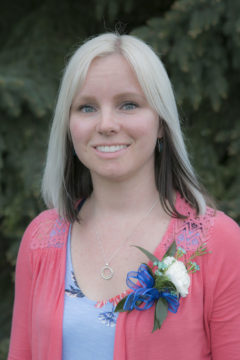
Ashleigh Nowakowski
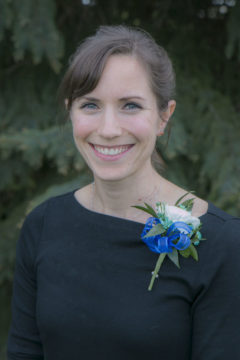
Katie Morrow
February 18, 2020 9:30 am – 12:30 pm
Katie Morrow MPA, PS, Prevention Education Specialist at Your Choice to Live, Inc. & Ashleigh Nowakowski, Executive Director at Your Choice to Live, Inc.
Based off our successful Wake Up Call real life exhibit of a teen’s bedroom, we have developed a program featuring a mock classroom designed for teachers, coaches, counselors, administrators and other professionals working with students to help them identify signs of possible substance use. Some students will go to great lengths to cover up substance use and to conceal illegal substances they slip into school. The goal of this presentation is to provide education and awareness to educators so they know how seemingly innocent items can be an indication of substance use.
The Wake Up Call Professional Development session is an effective method of increasing education and raising awareness about substance use among youth. There are many consequences that result from youth substance abuse. Youth who repeatedly abuse substances often experience a variety of problems, including academic issues, health-related complications (including mental health), poor relationships with peers and family, and involvement in the justice system.
The key learning objectives are that each participant will:
- Have a better understanding of how students may use seemingly innocent items to conceal substance use
- Be able to understand concerns of use, especially in an educational setting, and understand that appropriate protocol if it is suspected that a student is using.
- Have more knowledge about the signs and symptoms of substance use, as well as current trends among youth.
These learning objectives are essential because having an increased awareness and understanding of youth substance use allows counselors, administrators and educators to intervene at an earlier age, increasing chances of successful treatment outcomes. Having a thorough knowledge of current drug trends assists administrators in enforcing school policies and maintaining a safe school environment for all students.
Online Safety and Emotional Health for Digital Age Students (K-12)
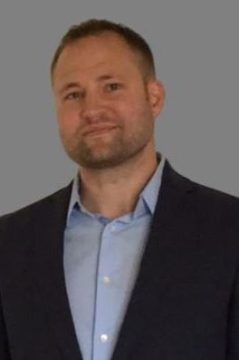
Chad Kliefoth
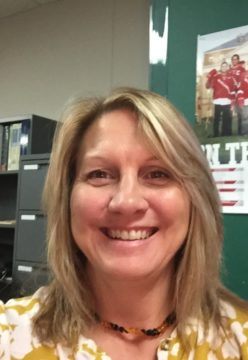
Beth Herman
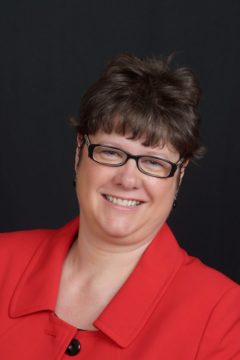
Janice Mertes
February 18, 2020 9:30 am – 12:30 pm
Janice Mertes Assistant Director Teaching and Learning – Digital Learning for WI-DPI, Chad Kliefoth, WI-DPI & Beth Herman WI- DPI
How do schools support the needs of digital-age learners?
Learn about current research data and resources from research organizations and the Wisconsin Department of Public Instruction to keep our kids safe online.
Identify district action steps and practices to embrace a culture of appropriate use, integrated programming, and student leadership models aligned to your school’s goals.
Participants will work through a planning activity to connect digital safety to mental health and social-emotional learning programming efforts to build school-wide capacity.
ACP Conferencing: How to do it all without doing it all! (6-12)
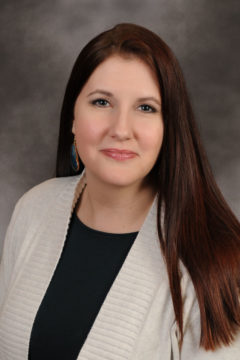
Adriana Plach
February 18, 2020 9:30 am – 12:30 pm
Adriana Plach M. ED, Continuous Improvement Coordinator for the Pewaukee School District
For years, counselors have been trained on the value of students engaging in annual personalized conferences. Making this endeavor a reality, however, has often been a challenge. Pewaukee School District has used our Academic & Career Planning system to develop a way to realistically deliver personalized conferences for all students in grades 7-11 each year. Participants will receive an overview of the ACP system in Pewaukee Schools, and dive into the format of our personalized conferences. Our conferences are developed by counselors and delivered by teachers in a way that engages all while keeping the process sustainable and effective. Challenges to implementation and how we addressed them will also be discussed. Results and resources will be shared to help pave the way for building or modifying your own processes. In addition, as continuous improvement is always a focus, we will review how we are moving forward to build upon what works to ensure all students are future-ready. Attendees are invited to bring their questions and laptops as we discuss implementation and sustainability with candor!
Negotiating the Legal and Ethical Complications of Working with Minors in Schools (K-5)
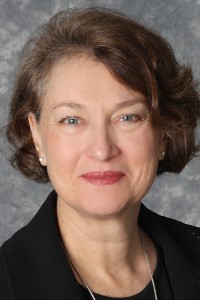
Carolyn Stone
February 18, 2020 9:30 am – 12:30 pm
Dr. Carolyn Stone, Professor of Counselor Educators at the University of North Florida
The school environment poses competing interests between a student’s need for confidentiality and the legal rights of parents as established by the U.S. Supreme Court to be the guiding voice in their children lives in value-laden issues. Participants will develop an ethical decision making framework for analyzing and resolving ethical issues through the application of ASCA ethical codes, case and statutory law, school board rules, and community standards. Through small group and large group discussion of 40 case studies, participants will be given the opportunity to increase their understanding of the complexities of respecting a minor’s right to confidentiality, to develop a sensitivity to the need to consider their actions in context of each situation for each individual student, and to understand the rights of parents. Topics of discussion will include areas such as confidentiality and duty to warn, minors’ rights to privacy, counselors’ responsibilities toward suicidal children, civil and criminal liability, sexually active minor clients, birth control, abortion counseling, defamation, child abuse, HIV positive students, case notes and educational records, malpractice in academic advising, sexual harassment, the Hatch Amendment and guidance curriculum, and personal conduct.
Equity, Racism, and Systemic Barriers in Rural Wisconsin: School Counselors as Advocates (4K-12)
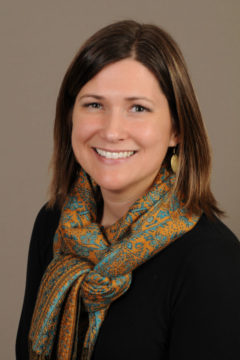
Paula Haugle
February 18, 2020 9:30 am – 12:30 pm
Paula Haugle, WSCA Conference Sectionals Director, 4K-12 School Counselor with the School District of Elmwood
Whether you are new to the issue of equity or are a passionate crusader, join the discussion and share strategies and ideas of how to address issues of equity, racism, and systemic barriers in rural Wisconsin. This is not a sit and get session. Resources and strategies will be shared, we will have open discussions and take time to begin analyzing your school’s current situation and creating a plan of action. Bring an open mind, your device and any school data you may have. Let’s work collaboratively to see what we as school counselors can do to move the needle and allow more equitable access to education and services for our students.
A School Counselor’s SEL Smorgasbord (K-8)
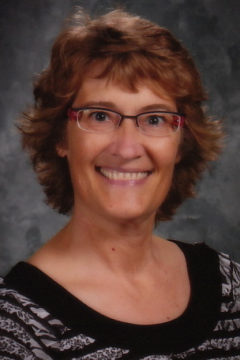
Barbara Gruener
February 18, 2020 9:30 am – 12:30 pm
Barbara Gruener B.S., M.S., M.S., Veteran School Counselor, Speaker, Character Coach, Author
If you’re looking for an innovative, intriguing and inspirational professional and personal growth session that will fortify what’s already on your plate with empowerment strategies that you can use in your character building as soon as you get back to your school family, then this interactive, high-energy pre-con workshop is for you. Prepare to be positively motivated and inspired by the wisdom, enthusiasm, hope and joy that veteran school counselor and nationally-recognized Wisconsin native Barbara Gruener, brings to a room. Soar on in to stretch and grow with this passionate character coach, mentor, and author of What’s Under Your Cape? SUPERHEROES of the Character Kind in the areas of mindset, emotional regulation, empathy, kindness, mindfulness and self-care.
Practice unleashing the power within as you align your core values with CASEL’s five SEL competencies to reignite your purpose, pursue your passion, and reconnect relationally with your students, staff, and stakeholders. We will be singing, dancing, coloring, roleplaying, buddy buzzing, laughing, breathing, even eating (SWEET!) in this jam-packed, three-hour extravaganza.
Collaborative & Proactive Solutions
Moving From Power and Control to Collaboration and Problem-Solving (6-12)
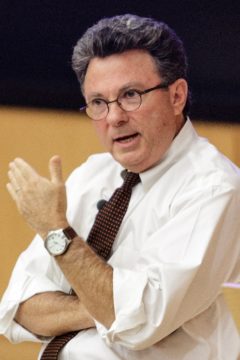
Ross Greene
February 18, 2020 9:30 am – 12:30 pm
Dr. Ross Greene PhD, Originator of the Innovative, Research-Based Model of Intervention Now Known as Collaborative & Proactive Solutions (CPS)
This is the evidence-based model Dr. Ross Greene described his influential books The Explosive Child, Lost at School, Lost & Found, and Raising Using Beings. The CPS model has transformed thinking and practices in countless families, schools, inpatient psychiatry units, and residential and juvenile detention facilities throughout the world, and has been associated with dramatic reductions in adult-child conflict, challenging behaviors, disciplinary referrals, detentions, suspensions, seclusions, and physical, chemical, and mechanical restraints. The model represents a significant departure from discipline-as-usual: it focuses on solving problems rather than on modifying behavior, emphasizes collaborative rather than unilateral solutions, encourages proactive rather than reactive intervention, de-emphasizes diagnostic categories, and provides practical, research-based tools for assessment and intervention. Participants in this workshop will leave with an understanding of the underpinnings of the model, its refinements over the past 8-10 years, and practical assessment and intervention tools that can be brought back to and used in these diverse settings.
At the conclusion of the seminar, participants will be able to:
- Describe the six key themes of the CPS model, and how the model focuses on problems (and solving them) rather than the behaviors that are being caused by those problems (and modifying them); the advantages of collaborative (rather than unilateral) problem solving; and the importance and feasibility of proactive (rather than reactive) intervention.
- Identify and assess the various cognitive skills that are central to adaptively handling life’s social, emotional, and behavioral challenges
- Identify and prioritize the unsolved problems precipitating challenging behavior
- Describe the three basic mechanisms by which adults handle unsolved problems and unmet expectations in kids (Plans A, B, and C) and what is accomplished by each, and the three steps or “ingredients” of Plan B
- Describe how to effectively implement Plan B to solve problems, teach skills, and reduce the frequency and intensity of challenging behavior
Half Day Preconference Workshops – Afternoon
Renewing your sense of why: Reinvigorating your School Counselor Role (K-12)
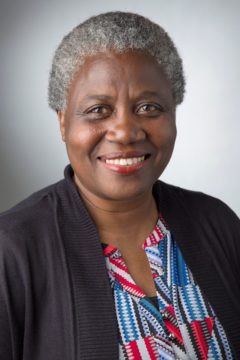
Ola Bamgbose
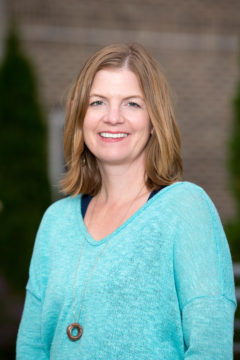
Jennifer Betters-Bubon
February 18, 2020 1:30 pm – 4:30 pm
Dr. Jennifer Betters-Bubon Ph.D., MS, LPC, Associate Professor of Counselor Education, UW-Whitewater & Ola Bamgbose, Assistant Professor, UW-Whitewater
The roles of school counselors are multifaceted and include working as counselors, college and career coordinators, teachers, disciplinarians, class schedulers, crisis responders, and leaders. The implementation of so many different initiatives (trauma informed schools, MTSS, SEL, SBIRT), along with the pressure from many stakeholders (e.g., teachers, administrators, parents) often forces school counselors to respond and react rather than working with intention. How do we break free from the expectations thrust upon us to focus on the work we are trained to do?
This session is meant to help you reground in your why.
During the half day sectional, we will focus on re-defining and re-aligning your role of professional school counselor. Armed with your own definition, we then will move to advocacy tools and discuss how to use the newly updated ASCA National model and MTSS to organize your role and educate others about your role. Throughout, we will focus on self-care strategies to fight against burn out. Our goal is that participants leave with a renewed sense of purpose and a wide array of resources to assist in their professional role.
Protecting Our Children: Internet Safety & Human Trafficking (K-12)

Kari Breitenfeldt

Tiffany Vogel
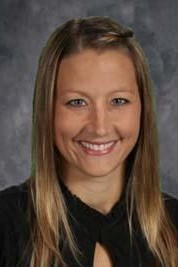
Jennifer Siudzinski
February 18, 2020 1:30 pm – 4:30 pm
Jennifer Siudzinski MS, School Counselor at Seymour Community School District, Tiffany Vogel MS, School Counselor at Seymour Community School District, Kari Breitenfeldt MS, School Counselor at Seymour Community School District, and Investigator TJ Hilgenberg with the Seymour Police Department

TJ Hilgenberg
Keeping students safe in a wired, media-driven society is no easy task. With advances in technology, protecting our children is becoming increasingly difficult whether in a rural or urban setting. In this presentation, you will learn how one community (Seymour, WI) has joined forces between local law enforcement agents, school district resources, and community leaders in order to promote and educate students, families, and community stakeholders about being safer with technology and the realities of human trafficking.
Participants will learn about how social media applications and technology contributes to the rapidly growing “business” of human trafficking, and what proactive, preventive strategies can be used to keep our students from becoming victims. This eye-opening session packed with information, practical tips and strategies and is sure to keep participants engaged and leaving with a wealth of knowledge on a subject not enough people are talking about (yet…).
In this session, participants will be taught how Seymour Community School District school counselors partner with Seymour Police Department officers to teach preventative internet safety curriculum and human trafficking prevention to students with their school community.
In classroom sessions using Netsmartz and other curriculum resources as well as large group presentations are planned and co-facilitated by the School Counselors and the School Resource Officer annually. Additionally, participants will learn how parents and community stakeholders are educated by the same collaborative team through interactive safety presentations and two-part family workshops about social media applications, human trafficking, and risk factors.
Attendees will also gain knowledge about how technology and social media apps work, the prevalence of human trafficking, warning signs, prevention efforts, and how the Seymour Community School District partners with the Seymour Police Department in order to provide prevention, intervention, and high level interventions with outside agencies and resources to students.
High risk students are connected with necessary resources such as Native American/Tribal resources, community based clinical counseling and social work resources, county social workers and juvenile resources. Through collaborative efforts between School Counselors and School Resource Officer, plans are developed for individual students and are based on the level of severity and risk factors to the student. Seymour has a model plan for educating both students and community members. Human trafficking is the trade of humans, most commonly for the purpose of forced labor, sexual slavery, or commercial sexual exploitation for the trafficker or others. It is the fastest growing industry in our nation; our students are more at risk than ever due to their connectedness through social media. It is reported that 600,000-800,000 victims are trafficked internationally each year. The average age of a child is forced into the sex trade is 12-14 years old. Increasing awareness about this real problem and sharing resources to use with students and families is the focus of this session. Other communities may find our process helpful and useful to apply within their setting. It is our hope that they can take away some ideas that they can implement immediately into their community to better protect their children.
See Xello in Action: Become a Xello Expert (6-12)

Chris Olford

Myriam Lamontagne
February 18, 2020 1:30 pm – 4:30 pm
Myriam Lamontagne & Chris Olford, Client Success Managers for Xello
In this interactive workshop, you’ll learn how Xello engages Wisconsin students and supports educators. Participants will receive training on Xello and have the opportunity to dive deeper into Xello for Elementary, Course Planner, Transcripts, and Lessons. Bring your laptop and get ready to become a Xello expert!
Negotiating the Legal and Ethical Complications of Working with Minors in Schools (6-12)

Carolyn Stone
February 18, 2020 1:30 pm – 4:30 pm
Dr. Carolyn Stone, Professor of Counselor Educators at the University of North Florida
The school environment poses competing interests between a student’s need for confidentiality and the legal rights of parents as established by the U.S. Supreme Court to be the guiding voice in their children lives in value-laden issues. Participants will develop an ethical decision making framework for analyzing and resolving ethical issues through the application of ASCA ethical codes, case and statutory law, school board rules, and community standards. Through small group and large group discussion of 40 case studies, participants will be given the opportunity to increase their understanding of the complexities of respecting a minor’s right to confidentiality, to develop a sensitivity to the need to consider their actions in context of each situation for each individual student, and to understand the rights of parents. Topics of discussion will include areas such as confidentiality and duty to warn, minors’ rights to privacy, counselors’ responsibilities toward suicidal children, civil and criminal liability, sexually active minor clients, birth control, abortion counseling, defamation, child abuse, HIV positive students, case notes and educational records, malpractice in academic advising, sexual harassment, the Hatch Amendment and guidance curriculum, and personal conduct.
Post Secondary Planning, Readiness and Resources Using a Trauma Informed Lens (6-12 and Post-Secondary)
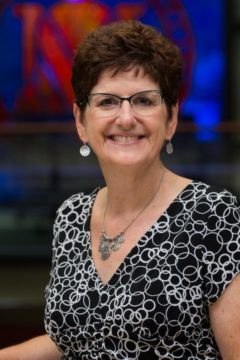
Linda Mulroy-Bowden
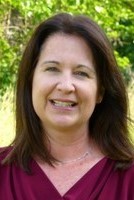
Chris Foreman
February 18, 2020 1:30 pm – 4:30 pm
Chris Foreman MSSW, Liaison for Nation Center for Child Traumatic Stress & Linda Mulroy-Bowden MSE, Director of Student Life and Development & Title IX Coordinator for University of Wisconsin-Platteville
This workshop will be a deep dive into the resources, readiness and supports useful for students transitioning from high school to post-secondary education.
The focus will initially be on adding practices that can be offered universally and benefit all students then pivot to those 2nd and 3rd tier students for whom adversity and marginalization put them at a greater need for trauma and developmentally-informed strategies. Threaded throughout this workshop will be the voices of youth, young adults and parents who have been helped through added supports and strategies as well as those who have noticed missed opportunities for engagement and effective support.
Collaborative & Proactive Solutions
Moving From Power and Control to Collaboration and Problem-Solving (K-5)

Ross Greene
February 18, 2020 1:30 pm – 4:30 pm
Dr. Ross Greene PhD, Originator of the Innovative, Research-Based Model of Intervention Now Known as Collaborative & Proactive Solutions (CPS)
This is the evidence-based model Dr. Ross Greene described his influential books The Explosive Child, Lost at School, Lost & Found, and Raising Using Beings. The CPS model has transformed thinking and practices in countless families, schools, inpatient psychiatry units, and residential and juvenile detention facilities throughout the world, and has been associated with dramatic reductions in adult-child conflict, challenging behaviors, disciplinary referrals, detentions, suspensions, seclusions, and physical, chemical, and mechanical restraints. The model represents a significant departure from discipline-as-usual: it focuses on solving problems rather than on modifying behavior, emphasizes collaborative rather than unilateral solutions, encourages proactive rather than reactive intervention, de-emphasizes diagnostic categories, and provides practical, research-based tools for assessment and intervention. Participants in this workshop will leave with an understanding of the underpinnings of the model, its refinements over the past 8-10 years, and practical assessment and intervention tools that can be brought back to and used in these diverse settings.
At the conclusion of the seminar, participants will be able to:
- Describe the six key themes of the CPS model, and how the model focuses on problems (and solving them) rather than the behaviors that are being caused by those problems (and modifying them); the advantages of collaborative (rather than unilateral) problem solving; and the importance and feasibility of proactive (rather than reactive) intervention.
- Identify and assess the various cognitive skills that are central to adaptively handling life’s social, emotional, and behavioral challenges
- Identify and prioritize the unsolved problems precipitating challenging behavior
- Describe the three basic mechanisms by which adults handle unsolved problems and unmet expectations in kids (Plans A, B, and C) and what is accomplished by each, and the three steps or “ingredients” of Plan B
- Describe how to effectively implement Plan B to solve problems, teach skills, and reduce the frequency and intensity of challenging behavior
Afternoon on the Hill (K-12 and Post-Secondary)
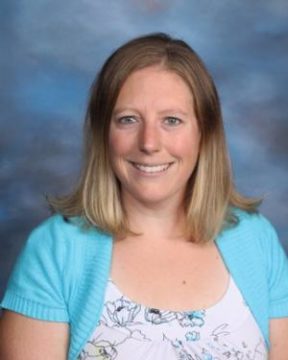
Kelly O’Connell
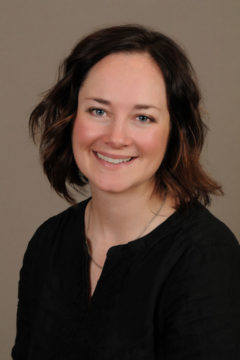
Rachel Pufall
February 18, 2020 1:30 pm – 4:30 pm
Rachel Pufall, WSCA Government Relations Director and Kelly O’Connell, WSCA Government Relations Director
WSCA’s Afternoon on the Hill continues to be a cornerstone of the annual conference. Come learn how to effectively advocate for the profession you love and put it to practice under the dome! The event will begin at Monona Terrace, where we will discuss effective strategies for meeting with our elected representatives in the WI Legislature and propose some key issues and talking points for your meetings. From Monona Terrace, we will head over to the Capitol for individual or small group meetings with your Senator and Representative!!
Back this year! Don’t miss Government Relations’ post-event gathering at a local establishment located near the Capitol and Monona Terrace, where you can stop in, warm up, and join the other AOH participants for a complimentary beverage of your choice.
The Workshop will kick off at The Monona Terrace Convention Center at 1:30 p.m.
Preview resources participants have received in the past
- Who is your WI State Senator and Representative? Click this link: https://legis.wisconsin.gov and enter your home address in the search box in the upper right-hand corner. (We will have set up your appointment in advance).
- Afternoon on the Hill Worksheet for meeting with your Legislator – Click Here
- Communicating with Your Legislator: Do’s & Dont’s – Click Here
Sneak Peek at Agenda:
- Introduction to Legislative Advocacy
- Tips for a Successful Legislative Meeting
- Setting our Talking Points/Educating Policymakers
- Orientation to Capitol (Map)
What to wear/bring:
- Professional attire. Look sharp!
- Sensible shoes
- Any information/documents from your school or district that you want to share with your representatives
- Business cards to leave with representatives


